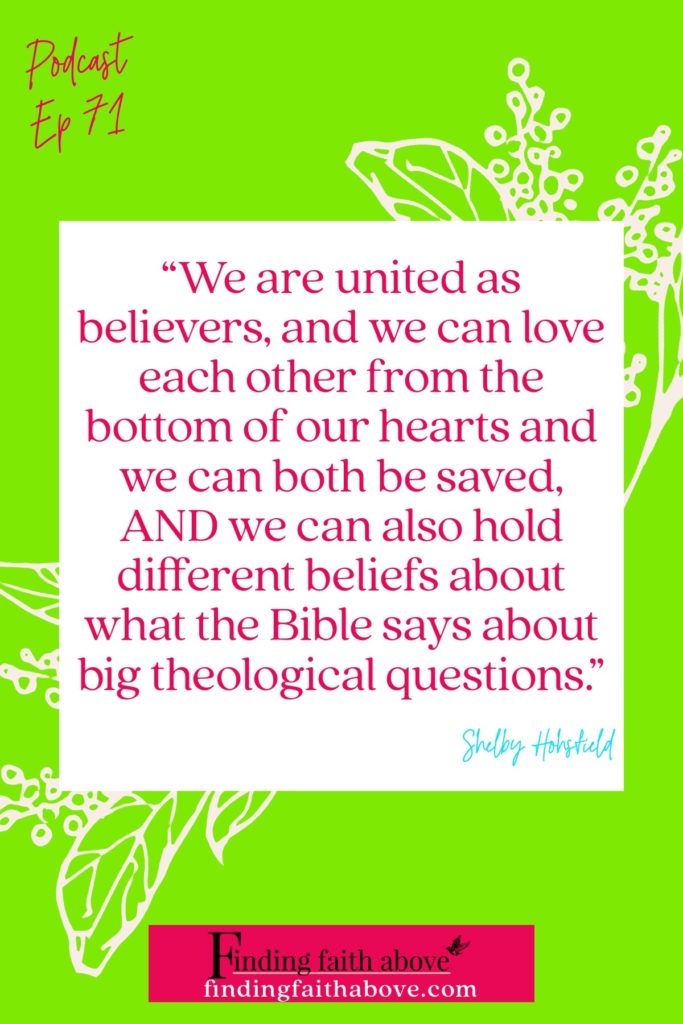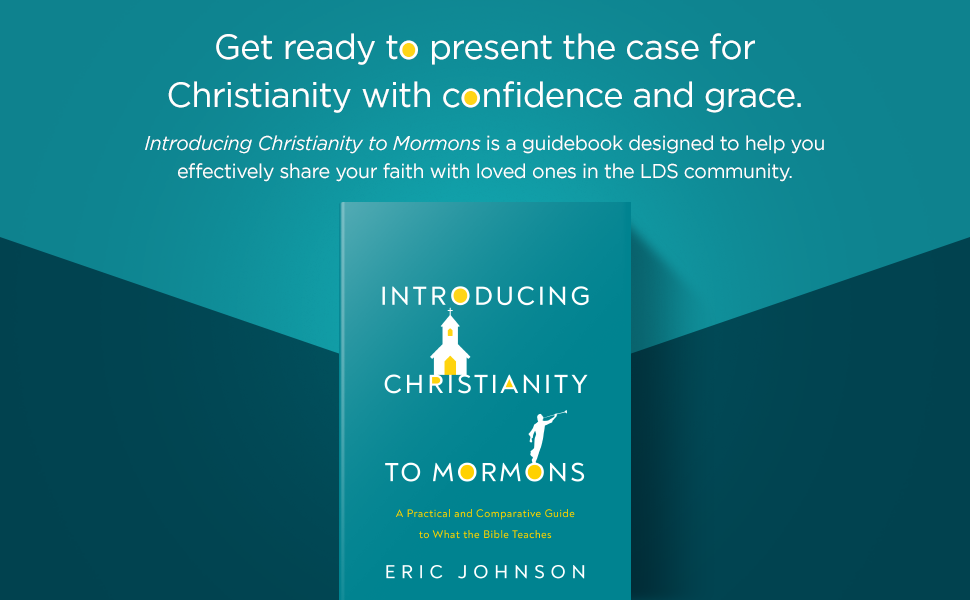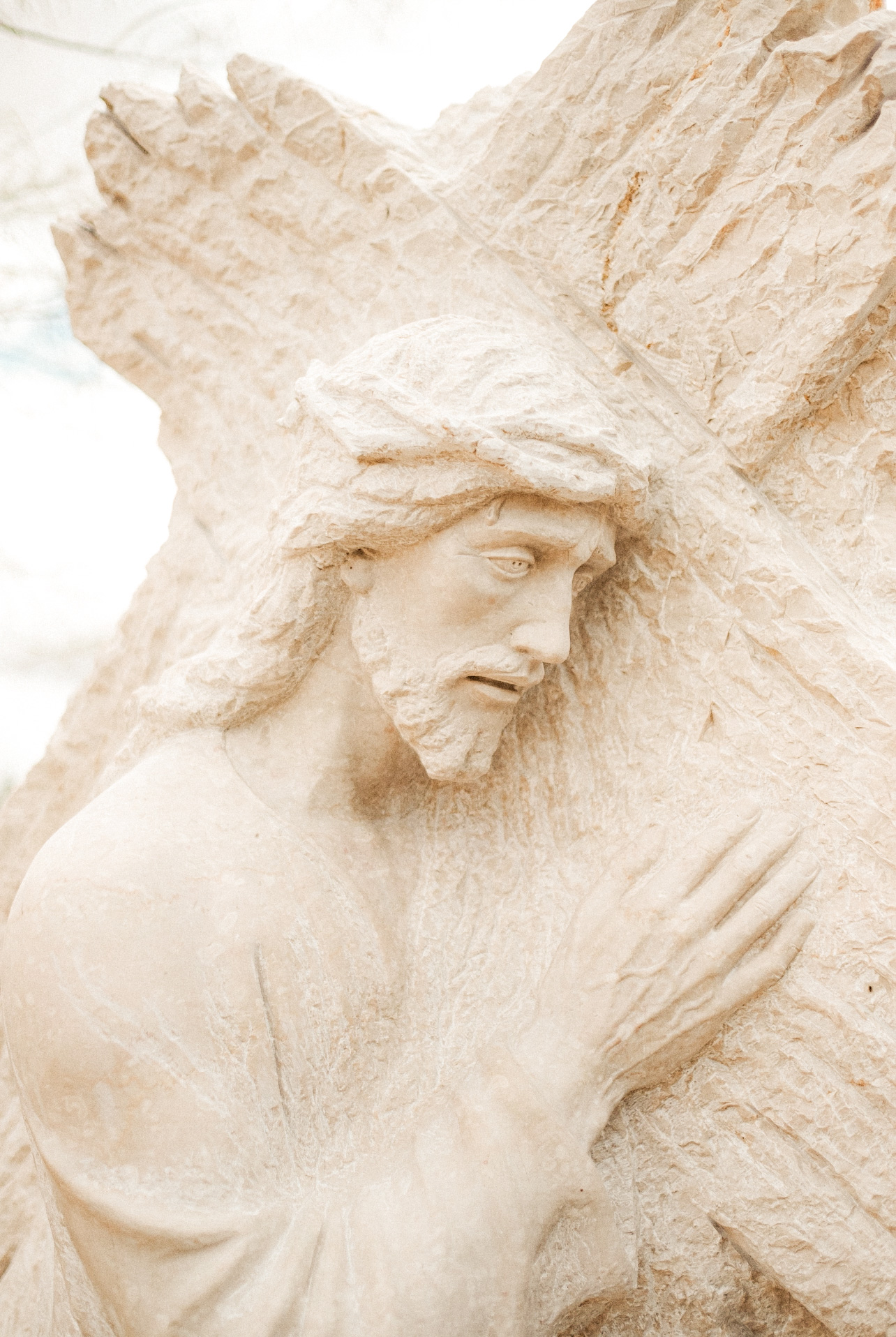September 12, 2022
Listen to the Podcast
What is Theology? Very silly, but until I became a Christian and long after I had never even heard this word.
Can you relate?
Today we are talking about what theology is, and whether you can become a theologian.
Today’s Question: What is Theology?
What is Theology? Can I Become a Theologian?
As I said, I had never heard this word for a very long time. When looking more into studying the Bible, religion, and learning about God I thought maybe you had to go to pastoral school and major in religion. I really did not know what was involved when wanting to study God and the concepts of the bible.
I also was a bit naive.
I thought when I can to Christ that most Christians all believed the same thing. Maybe if you were Lutheran as opposed to going to a non-denominational church then I would expect some small differences, but again naively I thought this would be more in how the service was carried out rather than doctrine.
I know this somewhat had to do with growing up Mormon. In the LDS church there is one way. Everyone is supposed to have the same belief system and ‘theology’ on the doctrine. No variation and deep dives into research just is not a thing.
When I first came to Christ I was shocked (and should not have been because it is God we are talking about) that the things He spoke so clearly into my heart on my night of surrender were the exact same things that other believers were preaching. And it stayed this way for a good while. As I learned more about who God is I learned more and more about the similarities in the change, the transformation of our hearts as believers.
But fast forward a bit to the realization that we do not all agree.
Crazy, right!?!
Wait, we can all be evangelical Christians and we can have a wide variety of beliefs on the end of the world, what Genesis is telling us, the age of the Earth, dinosaurs, God’s providence and so much more?
Yes!
We are united as believers, and we can love each other from the bottom of our hearts and we can both be saved, AND we can also hold different beliefs about what the Bible says about big theological questions.
My enneagram five brain was blown with this. Me and research are like peanut butter and jelly.
As soon as I started to go down this road of understanding Christain beliefs it became very apparent that I needed to define one very important term: theology.
Today we are geeking out over Theology!
1) What is Theology
The word, Theology gets its roots in Greek beginnings. To break it down, it is ‘theo’ meaning God and ‘logos’ generally meaning the study of, like biology or geology. So basically it means the study of God.
Have you ever heard this word? Were you intimidated by it? I was, but all theology really means is the study of God, and we all can do that.
But as I heard this word more and more I wanted to know how it is used today and what in an academic sense it means.
In an academic setting, there are different types of theology. I say academic, but I think we all take liberties with these different approaches while digesting our Sunday sermons and in our personal studies. How we approach our study of God varies.
Here are the four main types.
- Systematic Theology: Any study that answers the question, “What does the whole Bible teach us today?” about any given topic.
- Historic Theology: A study of how Christians in different periods have understood various theological topics.
- Philosophical Theology: Studying theological topics largely without the use of the Bible, but using tools and methods of philosophical reasoning and what can be known about God from observing the universe.
- Apologetics: providing a defense of the truthfulness of the Christian faith for the purpose of convincing unbelievers.
~These are all pulled from the text, “An introduction to Systematic Theology,” by Wayne Grudem.
You can see how this all would pique my Geeky curiosity.
Here I was coming to Christ, I wanted to know basic Christain beliefs and doctrine, and this whole new world of the study of God just opened up in from of me!
And what is even more fun is that within the Christian faith it is not discouraged at all to ask questions and to study and find answers.
In fact, it is a whole discipline that is encouraged!
2) Can I Become a Theologian?
Guess what? You already are!
I can not tell you how many times, especially in the devotional podcasting world I have heard people say something like, “Don’t take this all literally. I am not a theologian.”
I disagree! Are you studying more to learn who God is? Then you, my friend are a theologian. In fact, more of us should be theologians.
But this term can be a bit intimidating. Most of the time when we think of theologians or when others are referenced as theologians they are people who have completed seminary (not the class you went to before high school), college-level study where one earns a master’s in theology, apologetics, divinity, or something in that realm. They have PhD’s and Docterets and have dedicated their lives to knowing more about the bible than maybe anyone knew was possible.
These theologians have spent an immense amount of time learning about God, the Bible, and in-depth Christain concepts. So cool! We can learn so much from these people.
And if you want to go down that road, you can! Full disclosure: seminary is totally on my bucket list. Who reads 1500-page textbooks on systematic theology? This nerd.
But that doesn’t mean that you are not a theologian. If you are studying God in all his glory, then you are a theologian.
3) What does theology mean to you?
Why should we care about studying God?
Paul says in Romans,
“For his invisible attributes, namely, his eternal power and divine nature, have been clearly perceived, ever since the creation of the world, in the things that have been made. So they are without excuse.”
Romans 1:20
The thing is God is all around us. He is undeniable.
His word is how we learn more about our creator.
Our purpose in this world is to love and know God, and then to make the things He has taught us known.
So why would we not study and learn more about Him? If we want to love Him, we have to know Him.
I do believe there is a difference in just studying for the purpose of knowing all the things. This can be a trap that, especially if you are trying to disprove a different belief, can lead us away from getting to know God’s love.
For instance, learning everything there is to know about the way in which the early church met and did ‘church’ is a great study about those who were following God. It does challenge things like the great apostasy and can set you apart as an expert when you have to defend how you worship today. This would fall under historical theology and is super cool.
But, does this bring you closer to God? Does this help you to humble yourself and bring glory to His kingdom, or does it elicit pride where you can prove someone else wrong?
It’s tempting, right?
It’s tempting to want to become the theological expert so you can show them!
This is where we are going to dive into the world of self-help and how to do it God’s way in episodes to come.
What is theology and how to be a theologian, God’s way.
Theology is so much fun!
Learning about our creator and what His word says to us is something you could literally study for the rest of your life and still be scratching the surface.
This love for knowledge is amazing, but we always have to make sure that we are doing it God’s way. That is, are we learning so that we may better know Him and love Him.
I do hope, pray and encourage you as you learn more about our Lord and His word that you d it with a humble heart, without pride or malice, but with genuine curiosity and desire to follow Him.
That is theology and how to be a theologian God’s way.


** Note: For every ounce of textural, archeological, social, anthropological, and what seems to be irrefutable evidence in one direction there is a pound in the other by someone who holds a different opinion. If you want to find someone who believes strongly in support of something very opposite of what is written here, you can probably find it. This is where my research and experience have landed me.
Resources used in this article:
An Introduction to Systematic Theology, by Wayne Grudem
What is a Theologian? How Do You Become One? Mathew Everhard, YouTube
…And countless hours in other podcasts, websites, articles, books, sermons, and lectures.








